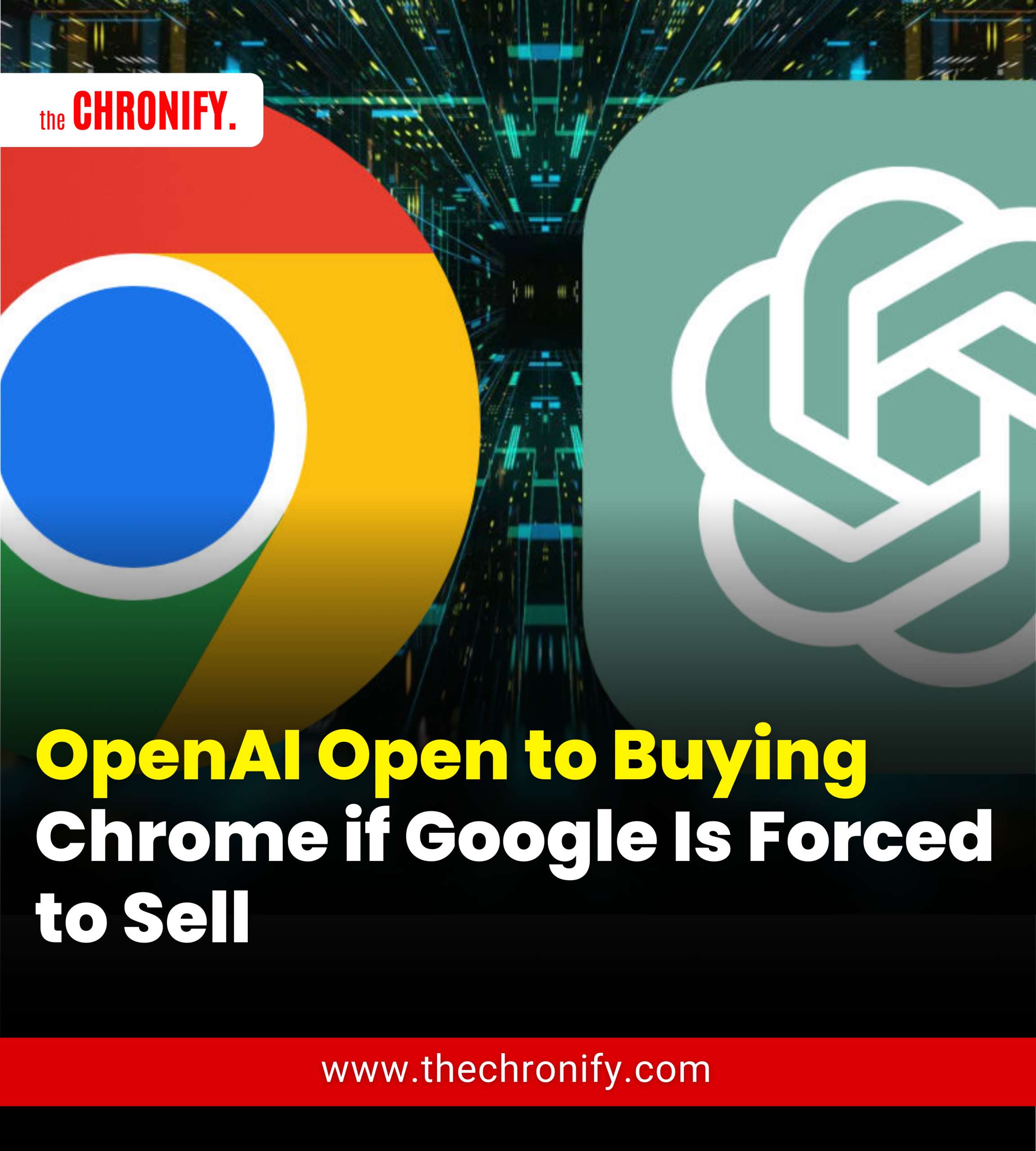OpenAI Interested in Acquiring Chrome If Google Faces Antitrust Sell-Off
Washington, April 22 — OpenAI has expressed interest in purchasing Google’s Chrome browser if U.S. antitrust regulators succeed in compelling Alphabet Inc. to divest the widely-used platform. The potential acquisition emerged during the ongoing federal antitrust trial against Google in Washington.
Nick Turley, OpenAI’s head of product, testified on Tuesday that the AI company would consider buying Chrome should regulators mandate its sale. The trial stems from the U.S. Department of Justice’s efforts to dismantle what it says is Google’s online search monopoly, including exploring remedies that would reinvigorate competition in the digital search and AI arenas.
Last year, District Judge Amit Mehta concluded that Google had unlawfully strengthened its dominance in search and advertising through exclusive partnerships. While Google has not put Chrome up for sale, it plans to challenge the ruling in appeals court.
Turley’s testimony offered a revealing glimpse into the competitive dynamics of generative AI. The DOJ argues that Google’s monopoly in search could unfairly influence the emerging AI industry, potentially extending its dominance via integration with AI platforms.
Google, in contrast, highlights competition in the AI space from rivals like Microsoft and Meta. Internal OpenAI documents presented during the trial showed that the company did not view Google as its primary AI competitor, despite recent friction between the two firms.
Turley recounted how Google rejected OpenAI’s request last year to integrate its search technology into ChatGPT, citing conflicts with too many competitors. At present, ChatGPT relies on Microsoft’s Bing for real-time search data.
According to Turley, a partnership with Google could enhance ChatGPT’s accuracy and overall user experience. The DOJ’s proposed remedies, including compelling Google to share search data with rivals, could significantly improve ChatGPT’s capabilities, he added.
OpenAI believes it is still years away from developing its own search infrastructure capable of answering most user queries independently. Meanwhile, Google is accused of crafting agreements with smartphone manufacturers and carriers—such as Samsung, Motorola, AT&T, and Verizon—that prioritized its apps, including Chrome and the Gemini AI app. However, recent contracts have reportedly shifted away from exclusivity.
The Justice Department is pushing for more than just softer agreements. It seeks structural changes to end Google’s longstanding practice of paying billions to be the default search engine on various devices—a core issue at the heart of this antitrust case.
This trial, and the remedies it may yield, could shape the landscape of search, browser dominance, and AI development for years to come.

